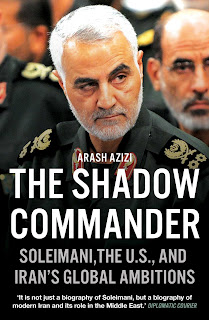Special Readings
This book was in response to 1044 pages of white lies (also known as white papers) issued to bind Zulfikar Ali Bhutto to his death. It was in response to allegations that led to the overthrow of his government, the suspension of the constitution, and the enactment of a strong military law. It was a complaint about humanity recorded in a death cell. It was written under the most hostile conditions "confrontation with lies and truth":
The document was smuggled into Bhutto's death cell and eventually banned in Pakistan but printed in India. The appeal in this text shows a strong will ("..but my character is high because it is not made of burning wood") and the personality of our martyr leader facing death. It was written angrily and fearlessly but nowhere did it show a lack of high understanding. He was always referring to history and literature through research and scholarly work.
There was no mercy, in fact, his words were so often so vague that they would pierce and evoke angry feelings about him: “I say again, the solution, even if it is fading, is still visible: (a) The country seeks the Constitution (b) The nation seeks democracy (c) and farmers want the People's Party.
Zia offered Zulfikar Ali Bhutto in exile but on the condition that he would not enter politics for ten years. According to Benazir Bhutto, his father did not accept the situation. I am not sure if Benazir is right or as Pran Chopra (the editor who received this publication) stated in the introduction that Zia withdrew from his offer because he was scared after seeing the power of Ayatollah Khomeini during his exile in Iran, but in any case, the deportation option was removed from history. Zia was right (if that is the line of thought we choose to enter) because if Bhutto was in exile, he would soon overthrow Zia's empire. Bhutto’s charisma can be compared to Pakistani founder Mohammad Ali Jinnah, himself. He had the power of the people and there was no question of winning against it.
Repetition of plant negotiations with France in 1976: It is clear from history now that one of the main reasons the "foreign power" was referring to hell in eradicating Bhutto was related to negotiations with this recycling plant. Bhutto failed to "listen" so an agreement was reached: PNA will oppose PPP to the best of its ability, and they will be given a total of 30 crores if PPP loses. BUT if they can't win the Army will take over. Again and again, the new non-PPP government will end negotiations with France.
PNA failed and Army took over!
Bhutto is locked up for hanging.
The main allegations against him are:
1) Election fraud
2) Political assassination
The supporting “evidence” in the white papers was ridiculous. It sounded like they were just holding on to the grass. For example:
- Use of war names. "It simply came to our notice then. Bhutto that he thought the next election would be a war against the Opposition. Quote: ‘In short, it will be a detailed, non-invasive combat program. We must start a campaign against the enemy, start with our own strength and attack the weak areas of our opponents. "This war-like word occurs and re-emerges in the speeches and programs prepared by Mr. Bhutto and the confident ones". - Page 11, white papers
In reply, Bhutto sums up his feelings with this high level of stupidity: “Only ignorant people can invent images like these unless the intention is to insult and cause prejudice and hatred. Phrases such as "do it or die" and "do not leave anything to chance" are used to show the determination and readiness of Zulfikar Ali Bhutto if he won the election blindfolded and there was no need for fraud as mentioned above, he organized the election by taking advantage of the opportunity. He visited jaggies where the cleaners lived, going to distant valleys sometimes 3 to 4 times just to make sure his voice was heard. There is no chance that he would lose.
Moreover, the case itself was a facade. Mushtaq Hussain was appointed Chief Justice during the trial, the same person who was rejected as a Chief Justice candidate while the PPP was in Government. There were millions of such atrocities identified in the text. Journalists were beaten in public, members of the PPP were detained or killed, the Prime Minister himself was in a horrible death cell without even the basic rights granted to him as a Pakistani citizen, his family members were imprisoned or imprisoned, his wife attacked, his daughter imprisoned - This is how Pakistan's democracy was.
He was brought down in the midst of trials with an offensive tongue. He was always told to "shut up", "get up" and "take this person away until he regains consciousness". Elections were not armed; the entire justice system in Bhutto's case had been thwarted.
Pakistan suffered the untimely death of Muhammad Ali Jinnah. Pakistan also suffered the assassination of Zulfikar Ali Bhutto.
Download Here




